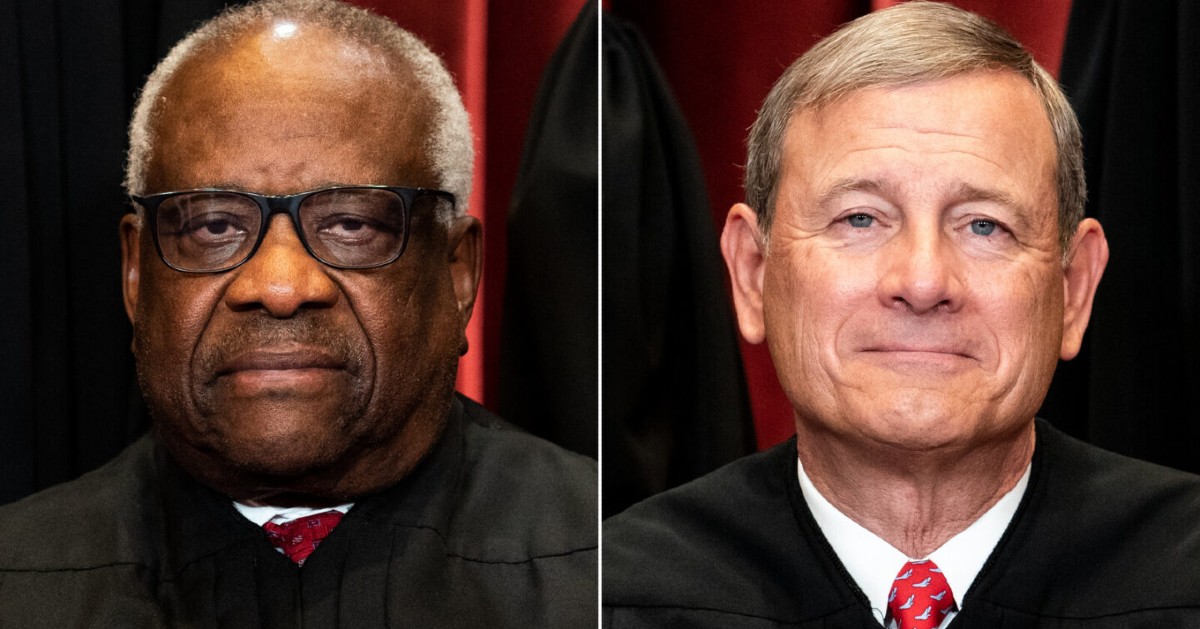OPINION: This article may contain commentary which reflects the author's opinion.
The U.S. Supreme Court has delivered a major ruling in favor of veterans.
In the case of Torres v. Texas Department of Public Safety, the court ruled 5-4 that states cannot invoke sovereign immunity to block lawsuits by veterans who want to reclaim prior jobs with state employers.
“Upon entering the Union, the States implicitly agreed that their sovereignty would yield to federal policy to build and keep a national military,” Justice Stephen Breyer wrote in the opinion. “States thus gave up their immunity from congressionally authorized suits pursuant to the ‘plan of the Convention,’ as part of ‘the structure of the original Constitution itself.'”
Justices Clarence Thomas, Samuel Alito, Neil Gorsuch, and Amy Coney Barrett dissented.
In his dissent, Thomas said the majority’s ruling is resting on “contrived interpretations” of the court’s prior decisions.
Here's the opinion from Stephen Breyer in Torres v. Texas Department of Public Safety: https://t.co/2FZNzmSC0B. The vote is 5-4. Clarence Thomas dissents, joined by Alito, Gorsuch, and Barrett.
The is the second and final opinion of the day.
— SCOTUSblog (@SCOTUSblog) June 29, 2022
The Supreme Court has delivered several high-profile rulings in the last week.
On Tuesday, the Court sided with the Louisiana state legislature by allowing the state’s Republican-drawn congressional map to remain in place.
A federal judge had previously ruled the map violated the Voting Rights Act and ordered lawmakers to redraw the state’s six congressional districts to include two in which Black voters were in the majority.
In a 6-3 ruling, the Court said it would wait until next term to rule on the matter given there’s a similar case from Alabama scheduled to be argued next term, which begins in October.
Last Friday, the Supreme Court delivered its long-awaited ruling on a case involving a former Seattle-area football coach who was fired from his job because he refused to stop praying on the field with players.
The nation’s highest court sided with the high school football coach in the crucial First Amendment case.
When the school district learned that Kennedy was praying with the team, they told him that he could pray separately from the students. Kennedy declined to change his practice, was put on paid leave, and then filed a lawsuit.
And, of course, the most notable ruling came last Friday when the Supreme Court released its decision in the highly-anticipated case of Dobbs v. Jackson Women’s Health Organization.
The Court voted in favor of overturning Roe v Wade, the landmark case that legalized abortion.
In early May, a draft majority opinion written by Justice Samuel Alito was leaked to Politico and it set off a firestorm.
“Roe was egregiously wrong from the start,” Alito writes.
“We hold that Roe and Casey must be overruled,” he writes in the document. “It is time to heed the Constitution and return the issue of abortion to the people’s elected representatives.”
“We, therefore, hold the Constitution does not confer a right to abortion. Roe and Casey must be overruled, and the authority to regulate abortion must be returned to the people and their elected representatives,” Alito writes in the document, labeled the “Opinion of the Court.”
Soon after Alito’s draft majority opinion leaked, it’s assumed there were at least 5 votes in favor of overturning Roe v Wade, leaving state legislators to weigh their own abortion policies.
Texas GOP Sen. Ted Cruz also offered his opinion of who he believes the “leaker” could be.
Prior to the official ruling being announced, Supreme Court officials launched a probe into identifying the source of the leaked draft opinion, which included asking law clerks to provide cell phone records and sign affidavits.
